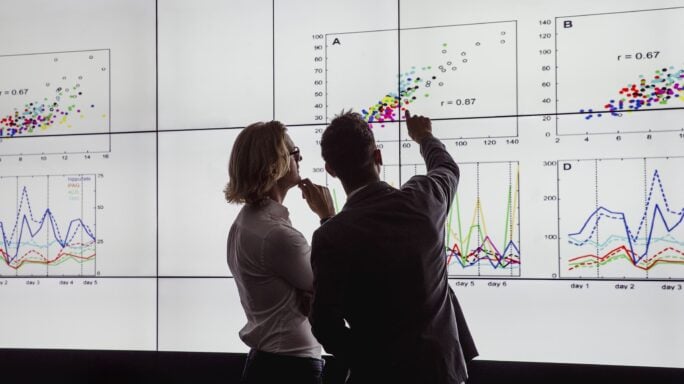Accountants
Leveraging collaborative intelligence in HR

Accountants tend to get worried about artificial intelligence (AI) becoming good at traditional “human” jobs. But robots replacing humans isn’t inevitable in the accounting profession, nor is it the most likely scenario. While AI is changing how we get work done and who does it, technology isn’t replacing people – at least not in knowledge jobs like accounting. Instead, it’s complementing and augmenting human capabilities.
Collaboration between technology and humans — i.e., collaborative intelligence — has incredible potential for transforming how accounting firms recruit, hire, onboard, train, manage, and retain employees.
Putting collaborative intelligence to work in your talent strategy
Human resources and talent strategy are all about connecting with current and prospective employees on a personal level, and that can be tough to do in a large firm. Collaborative intelligence allows HR teams and talent professionals to focus more on people and less on paperwork.
Recruiting
Starting with the recruiting process and all the way through onboarding a new hire, HR departments traditionally require applicants to re-enter the same information multiple times. These repetitive, tedious tasks can leave job applicants and new recruits with a poor impression of your firm.
To alleviate some of the monotony, firms can use robotic process automation (RPA) to help candidates transfer information from their resumes or LinkedIn profiles into digital forms and more efficiently complete paperwork. This information can also be sent automatically to background check and new hire forms, so candidates and HR professionals don’t have to re-enter the same information over and over.
By reducing necessary but intellectually unengaging data entry work, HR teams and recruits have more face-to-face time. That face-to-face connection is crucial for hiring the right people. While algorithms can assess factual data such as skills and analytical ability, humans are better at assessing whether a person has integrity, good judgment, creativity, and emotional intelligence to work well on a person team.
Onboarding
Many firms had to make leaps and bounds in their use of technology to hire remotely during the pandemic. Even as some of us return to the office, we believe the benefits of remote recruiting and work-from-anywhere policies are here to stay. But to make remote hiring, onboarding and ongoing collaboration work, firms need to digitize the employee experience.
Your talent processes aren’t digital or remote-friendly if you have people print an attachment, sign it and send it back, or mail a stack of paperwork to their home. Fortunately, numerous HR platforms allow your firm to digitize HR workflows, replacing scanning paper documents and email attachments with a unified digital onboarding workflow.
While such systems require an investment in new technology and processes, digitizing the onboarding process saves valuable time and resources. Your HR team, freed from the busy work of manual onboarding, can shift their attention to higher-value initiatives, such as working to optimize employee engagement.
Training, learning, and development
HR departments are increasingly tasked with the creation of agile and adaptable training and development programs that meet the individual needs of employees and prepare them for the future of accounting. This includes less technical skills training and more teaching human skill sets such as critical thinking, cultural awareness, and emotional intelligence.
AI can help personalize employees’ learning and development journey by customizing programs based on job role, existing skillsets, career goals, and skills gaps. When the training is customized to each employee, it’s possible to match content and program recommendations based on individual employee needs, which leads to better outcomes.
Retention
Organizations also use AI in their talent retention strategies. It’s no secret that the last year and a half put tremendous strain on the people in our profession. Pandemic-related stressors, extended deadlines, the blurring of work and home life, increasing client service demands, and a whirlwind of economic stimulus legislation pushed many accounting professionals and their support teams to the breaking point. Plus, it’s harder to monitor employee burnout in a remote environment.
Fortunately, many organizations now use AI to predict employee fatigue, burnout, and overall engagement. These tools analyze employee data, collect insights and build smarter, more personalized workloads and schedules, which empowers people to take control of their work/life balance.
Ultimately, these improvements lead to more productive conversations between firm leaders and their team members, which results in improved performance, increased engagement and reduced turnover.
Without AI and RPA, talent professionals will struggle to have the time and resources needed to support their teams properly. By incorporating collaborative intelligence in your talent strategy, talent professionals can focus on taking a more human role and delivering a better employee experience.
Human characteristics like leadership, teamwork, creativity and social skills are vital and can’t be duplicated by machines. However, technology is also vital as it increases speed, scalability and analysis. Together it’s a winning combination, so strategize now to ensure success







Ask the author a question or share your advice